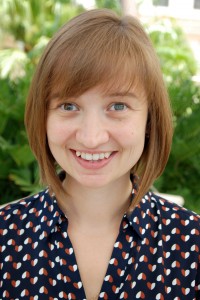Dr. Katerina Berezina, University of South Florida Sarasota-Manatee, Sarasota, FL, USA, delivered the lecture “Hospitality IT 2020: Shaping a Hotel of the Future”
 |
My visit to the Higher School of Economics in Moscow, Russia was undoubtedly a highlight of this summer. In the scope of this visit I had a chance to learn about the “Tourism and Hotel Management” specialization of the Master’s program “Experience Economy: Hospitality and Tourism Management”, and also to meet the faculty, students, and industry professionals supporting the program. I highly value this opportunity for professional exchange, learning, and collaboration with faculty members and students from the Higher School of Economics. My university, the University of South Florida Sarasota-Manatee, is a part of the University of South Florida System, a global research-intensive university that encourages and supports international collaboration. I was highly interested in establishing relationships with the Higher School of Economics as one of the top research-oriented universities in Russia, and a leading provider of hospitality education. |
I was greatly honored to receive an invitation to visit the campus and deliver a guest lecture to the Master’s students in the “Experience Economy” program.
I was cordially invited to one of the class sessions of Dr. Dorofeyev’s Hospitality Information Technology course. As a professor of Hospitality Information Systems, and a Coordinator of the M3 Center for Hospitality Technology and Innovation I was very excited to meet Dr. Dorofeyev, and all students taking the class, who share my interest in hospitality technology trends and research. In addition, I was delighted to see the support of faculty and industry professionals who also attended my lecture.
The lecture that I delivered was entitled “Hospitality IT 2020: Shaping a Hotel of the Future”. During the lecture we discussed how technology may transform a hotel of the future in different areas, such as guest services, in-room technology, distribution trends, and strategic use of technology. Some of the topics covered at this lecture included mobile technologies, interactive guest room, text mining, last minute distribution and hotel flash sales (e.g. Groupon Getaways). We also talked about the role of robots in the hospitality industry: hi-tech versus high touch, or how employing robots in the hotel industry may benefit or hinder guest experiences.
In addition, I introduced students to the M3 Link hotel business intelligence system. This real-life hotel-specific system seamlessly reports property management, financial, guest satisfaction, and competitive set data in one platform. This system was made available to the universities by the M3 Accounting + Analytics in partnership with the University of South Florida Sarasota-Manatee. I believe bringing such a system to the classroom may significantly enhance students’ experience by exposing them to the type of data, systems, and tasks that students may be performing in the future as hotel managers.
I greatly enjoyed meeting and working with all students who attended my lecture at the Higher School of Economics, as they present such an intelligent, curious, and motivated group. I was very pleased to see how students were engaged in the material covered during the lecture. I believe that by asking questions and sharing their experiences students may understand the material deeper, and also may help their peers to learn relevant examples from the industry and further understand the concepts presented in the class. Student participation and interest created such a positive and productive environment for everyone involved.
Another activity that I was involved with in the scope of my visit to the Higher School of Economics was a review of Master’s dissertation. I reviewed the work of Ms. Tatiana Vasilkevich on the topic of “Search and recommendation systems in the tourism industry: business opportunities and prospects”. I greatly enjoyed reading this research study as Tatiana was successful in identifying a timely and important topic for both academic and professional audiences. In the age of electronic commerce where we live now, recommender systems play an important role in tourism distribution and definitely should not be ignored. Tatiana also employed appropriate design to conduct the study. There was not surprise for me to receive good news later about Tatiana’s successful defense of her Master’s dissertation.
Overall, my visit to the Higher School of Economics was such a rewarding and motivating experience on so many levels. I hope that the collaboration that we started this summer will turn into a long-term relationship with numerous interesting projects. I would like to thank everyone who I met at Higher School of Economics for their warm welcome and a wonderful experience that they created for me. Also, special Thank you goes to Dr. Marina Predvoditeleva for coordinating this visit and for her true hospitality. And, last but not least, I would like to thank Dr. Jim Curran, the Interim Dean of the College of Hospitality and Tourism Leadership, and Dr. Cihan Cobanoglu, the Director of the M3 Center for Hospitality Technology and Innovation at the University of South Florida Sarasota-Manatee, for their encouragement and support of this visit.
